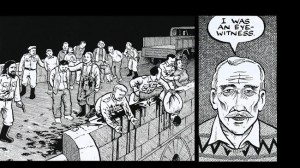Hey Readers!
So, this is it. This is my final blog post as an ASTU 100A student. I can hardly believe it. Without further adieu, here are my final thoughts as we near the end of the term.
Our final academic article that we have been analyzing is Peter Morey’s “’The rules of the game have changed’: Mohsin Hamid’s The Reluctant Fundamentalist and post-9/11 fiction”. This article was a bit more challenging to read, as it covered so much in such a short amount of writing. He began his piece by focusing on the forms of The Reluctant Fundamentalist. Specifically, it being in the form of a dramatic monologue. He also emphasized Hamid’s writing style as destabilizing the readers’ identification, as well as the role of the novel in the realm of world literature.
Despite undertaking such a wide array of topics in regard to Mohsin Hamid’s novel, the article was—overall—synthesized very well. I would offer a few critiques though: Firstly, I would say that he does not thoroughly define what he means by deterritorialization, despite it being the main focus of his article. Morey does not explicitly state what he himself interprets this to mean, and its significance in regards to Hamid’s novel. It is left up to the readers to determine what the meaning and significance of this “deterriorialization” is.
Also, I would’ve found it helpful for Morey to refer back to his thesis more often throughout his paper, in order to link his analysis back to his larger idea. I often found myself thinking when I was knee-deep in analysis, “what does this have to do with his argument?” A prime example of this is how Morey briefly mentions the “naïve exoticism” of the publication process (142). I brought this up in lecture because I was genuinely curious as to what my classmates thought of this example. Was I the only one who found it strange? Aided by the fact that he does not thoroughly and explicitly state to the reader why he sees as significant, I found this paragraph hindered his argument more than it helped it.
Despite these flaws, I still found his larger ideas very compelling. World literature is growing in importance, and it is important for readers to not be passive when logging information from novels of this genre. Binaries are no longer reliable, especially in regards to cultural terms and identity. World literature, ultimately, works to expose and contest structures of power as a geopolitical tool. This is evident today, as the “the effects of 9/11 are still very much being played out” (145). World literature attempts to moderate these structures of power, and ensure readers remain critical of what they are reading.
So that’s it. I hope everyone has a happy Easter, and a great remainder of the year!
Thanks, Readers!
-Kendall Manifould
Morey, Peter. “The Rules of the Game have Changed:” Mohsin Hamid’s The Reluctant Fundamentalist and Post-9/11 Fiction.” Journal of Postcolonial Writing 47. 2 (2011): 135-146. Web. Taylor & Francis. 18 Dec. 2015.

